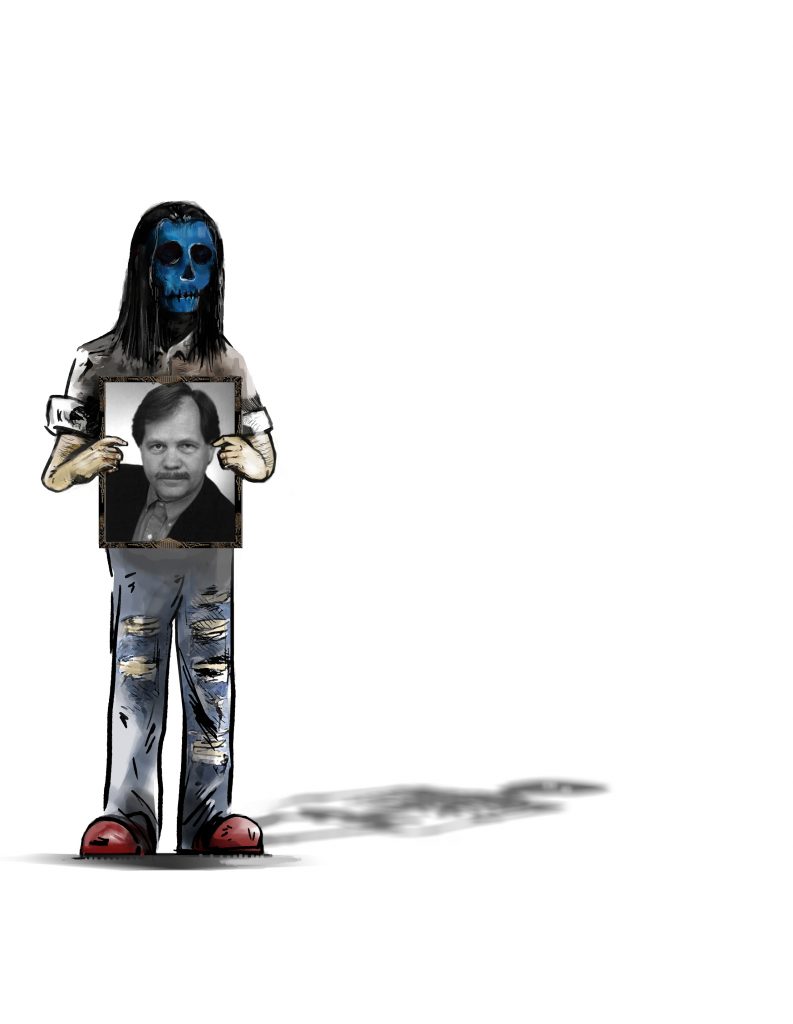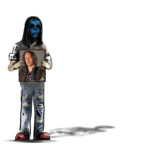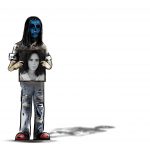Christopher Vogler. The Writer’s Journey
I first heard about Chris by way of his book, The Writer’s Journey. It’s a must-read for anyone studying the craft of story, specifically relating to the Hero’s Journey. Fiction authors in particular could stand to study his ideas closely.
His own journey has become something of a legend in Hollywood. I’ve heard several iterations of this story, but in a nutshell, he purposely left a seven-page manuscript, breaking down Joseph Campbell’s work from theory to application, on a copy machine at Disney. Someone else found it and took credit. Chris was soon vindicated and now many of the big studios follow his methods for blockbuster hits like The Lion King or Finding Nemo, for example. Since then, he expanded the manuscript into a very well-crafted book, a bible if you will, for many writers, called The Writer’s Journey.
Paraphrasing Chris (badly)…
“The role of the storyteller is to correct morals, to remind the public of what’s right, to provide a light in the darkness, through the shadows of so many failing institutions.”
This shines brightly for me because many religions, certainly politics, and even the American Dream, are in free fall. And maybe I’m way off here, but it feels like we live in a culture where opinions are shouted out like facts. Maybe I’m doing it right now? But I’m surprised when my friends are convinced that socialism is bad, for example, but can’t explain how it’s different than communism. And how many religions are still preaching absolute authority? The rare times when I turn on the news, it seems that everyone needs a good reminder of how to be cool. Whatever happened to kindness, love, or empathy, for one’s own sake? Perhaps too many people are trying to prove a point not worth proving…
I wonder what Chris thinks…
Q: What is your favorite sandwich and who makes the best one?
C.V. Right now, it’s a burger topped with crunchy Fritos and cheese. It’s made by a Texas-inspired restaurant chain called Hopdoddy Burger Bar. Texans believe Fritos make everything more delicious.
Q: What is your favorite meal your mom makes?
C.V. Spaghetti. Walt Disney’s Davy Crockett on TV while you eat a plate of Mom’s spaghetti – that’s entertainment.
Q: How did you meet your best friend?
C.V. When I was in the Air Force in San Antonio I went down to the local theatre to audition for a production of “Dial M for Murder.” There I discovered that the director (David McKenna) and I enjoyed the same kind of movies and plays and had similar ideas about them. We began a dialogue about stories and society that has gone on for forty years. He had a lot to do with the formulation of my ideas about the Hero’s Journey. We co-wrote a book about our discourse, “Memo from the Story Department,” in which we discuss the different frameworks and schools of thought that have influenced us.
Q: When or how did you find what you wanted to do?
C.V. I was so on fire about movies and TV shows. I always knew I would do something in media. It didn’t come into clear focus until my last year of graduate work at the USC Cinema School, when I encountered Joseph Campbell’s idea of the Hero’s Journey “monomyth” and saw it validated by the success of the first “Star Wars” movie.
I wrote a paper for a class, attributing the popularity of Star Wars and Close Encounters to their use of Hero’s Journey elements. After exhausting myself with a couple of all-nighters to get the paper turned in on time, I experienced a kind of epiphany, a real vision that laid out a clear path for my future, by simply following the steps indicated by the Hero’s Journey.
I realized the Journey is more than a template for exciting storytelling, it’s also a reliable guide to living.
A lot of things that I was interested in suddenly came together into a coherent picture. I felt reassured that if I followed this path, everything would turn out well in the end.
Q: How did you pursue it?
C.V. I found a path into the studio system by making myself a “reader” or story analyst. I wrote a synopsis and critique of Stephen King’s vampire novel “Salem’s Lot” and used that sample to get my first jobs, writing “coverage” of novels and scripts submitted to the studios. I read thousands of scripts and wrote evaluations of them, a great training ground in narrative theory. Eventually, I started doing more complex work, analyzing scripts in production and doing research for upcoming movies, and started calling myself a “consultant.”
Meanwhile, I tried to get people in the studio world talking about the Hero’s Journey ideas, which I felt were so useful for crafting popular entertainment. I passed around copies of my college paper about Campbell and Star Wars. When I was working at Disney, I took time off to re-formulate the theory into a seven-page memo that I circulated around the studio.
I had a strange feeling about this memo — that it had a mind and a life force of its own, and would multiply and do lots of work for me, going out like an army of small robots to propagate my story “brand.” In fact, it did spread quickly through the collective mind of Hollywood – like a virus, through the primitive modes of fax and copy machines, and became required reading at many studios and agencies.
I knew I was on to something big when someone, a mid-level executive at the studio, plagiarized it.
The memo reached top executives and they thought it was significant, a clear statement of dependable storytelling principles. I wrote a letter to the head of production, Jeffrey Katzenberg, claiming authorship of the memo. Then he put me in touch with Disney Feature Animation, which was just gearing up to do “The Lion King.” I was invited to give input on that show and became a member of the animation story staff for awhile, doing research and evaluating upcoming projects. They were already using my Hero’s Journey signposts to outline The Lion King, so I didn’t have to sell the idea — the robots had done that for me.
Q: Did you have a mentor/mentors in pursuing it?
C.V. Joseph Campbell was, of course, a great inspiration and encouraged me on the couple of occasions when I met him. I was fortunate in having good teachers, especially a man named Ken Evans. Ken, who taught story analysis at USC, assured me I could find work in the studio system, and Professor Drew Casper who guided me to Campbell and the Hero’s Journey. I learned a great deal from Jeffrey Katzenberg, and from working with Fox executives Kevin McCormick and the late Laura Ziskin, who headed the Fox 2000 unit while I was there.
Another big influence is Michael Wiese, the visionary publisher who took a chance on my manuscript, “The Writer’s Journey,” over 20 years ago. He’s become a venerable wise man and a spiritual path-finder.
Q: What do you dream of doing or are you doing it?
C.V. After analyzing 20,000 stories by other people, I want to tell some of my own. I have the urge to compose on the epic scale.
Q: What would your 15 year old self say to you now?
C.V. You look good for your age.
Q: If life were a person what would you say?
C.V. Hey Life, you sure can dish out the surprises.
Q: If you were in charge of the world and you have no restrictions, real or imagined, what is the one thing you would give it?
C.V. The ability to neutralize weapons before they are used in anger. Some kind of ray that would anticipate people’s murderous impulses and calm them down before the violence happens.
Q: Has morality disintegrated to the point that we now need Yelp for people?
C.V. I don’t need Yelp to evaluate people; it’s not trustworthy because it’s made up of people. I rely on reading faces and intentions and the reactions of the organs of my body.
Q: How is society getting things right?
C.V. Given the whole scope of human history, we are doing a little better at taking responsibility for each other and the planet we live with. We can do better.
Q: What do people need in order to see each other as equals?
C.V. It takes practice at empathy, imagining yourself in the situation of other people, seeing people objectively and compassionately, rather than judging and categorizing them. I could really see and feel that in Scorsese’s brilliant “The Last Temptation of Christ” where Jesus feels deep compassion for the sufferings of his fellow human beings.
Q: Do we still need religion?
C.V. Yes, it is a human drive, like building shelters or preparing food. People either find comfort in some formal religious practice along with many other people, or they create a personal religion around a set of beliefs and values. Religion is like language, a medium for communicating with higher forces and with different levels within your own being.
Q: Do you have hope for the future?
C.V. Yes, but…. We have some giant crises ahead and will have to be agile as a species to get through them.
Hot topic of the week:
This is an open discussion. Could be Gay marriage or Confederate flag, Donald Trump, for example.
C.V. Anything, or anyone, but Trump.
Don’t you all realize, Earth was invaded by an alien life form in 1947, a box of transistors recovered from the crash site at Roswell, which have replicated and mutated themselves through the devices that we lovingly nurture and train until they become obsolete, requiring us to buy new ones until we ourselves become obsolete?
Q: What are three things that work for you: For example, I can’t find a good razor. Because of a near unbridled need for massive profits I find that many products don’t live up their advertising. What works for you?
C.V. Arnica gel, great for bruises and muscle aches, no bells and whistles, no smell, just calming and soothing. Why don’t doctors know about this or tell you about this simple, but effective thing?
Dr. Hauschka’s Neem hair tonic. Actually makes my hair darker and thicker.
Goop, a household adhesive, sealant and gap-plugger that has stuck together many a household.
More thought-provoking questions:
1: Do Americans have the right to complain about immigration?
C.V. I refer this question to the nearest Native American.
2: If our value system is based on scarcity then what of a human life, now that the population is in the billions?
C.V. Every person is a piece of God and the center of a sacred universe. The more the merrier, I say.
3: Would life be easier if racism were accurate?
Racism is inaccurate by definition.






